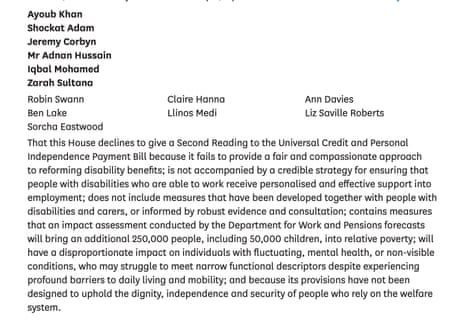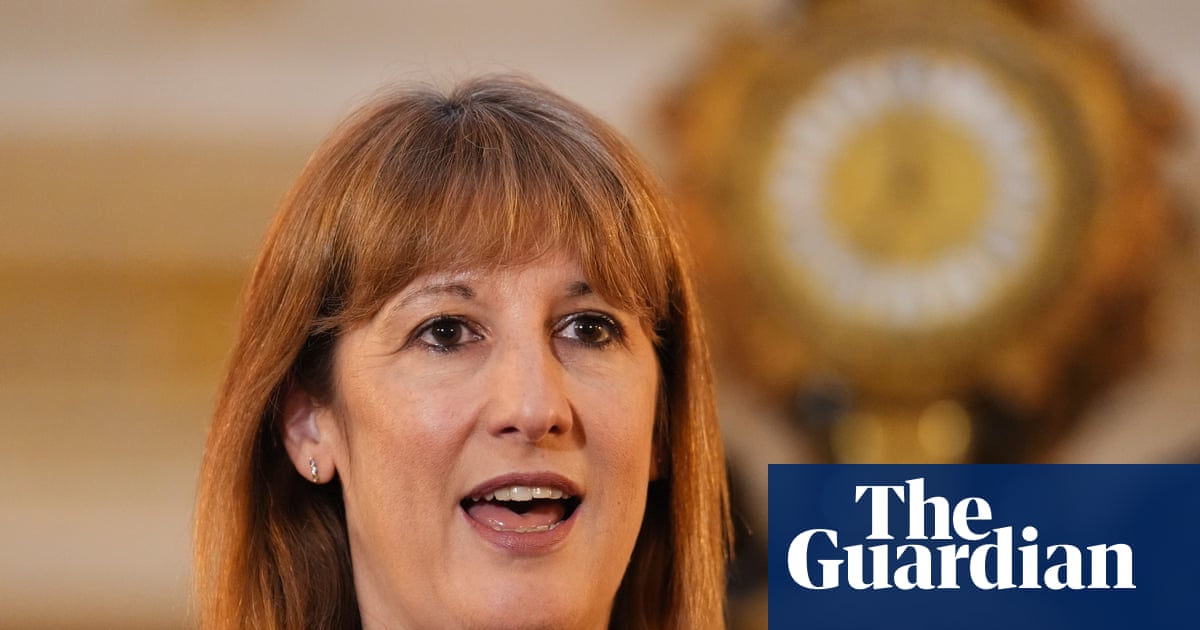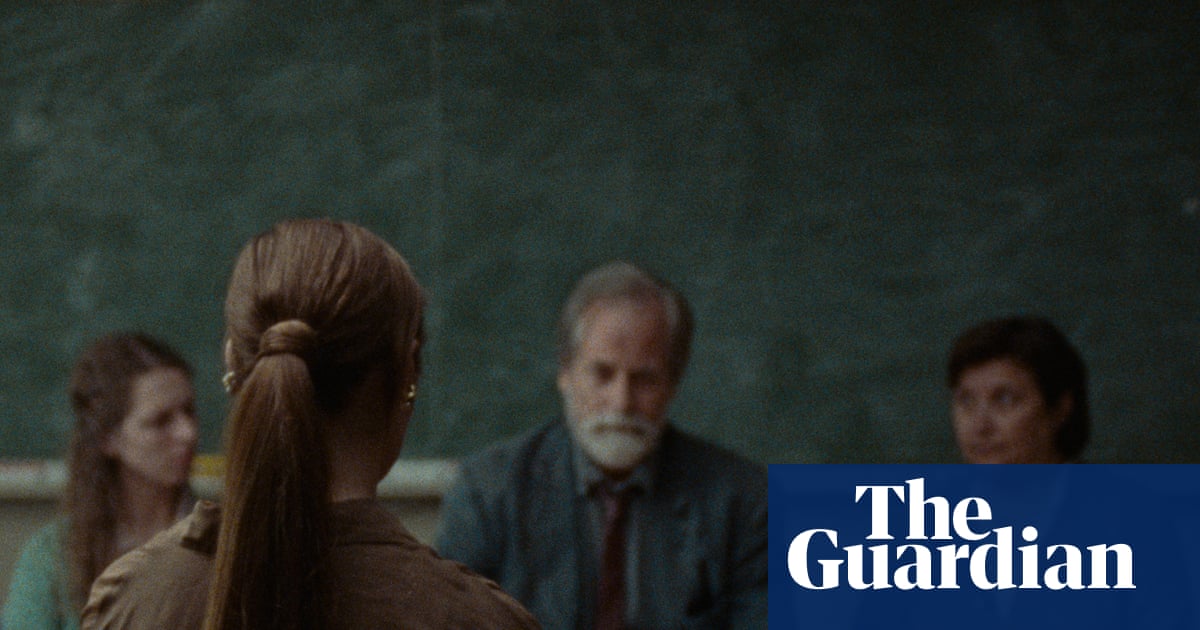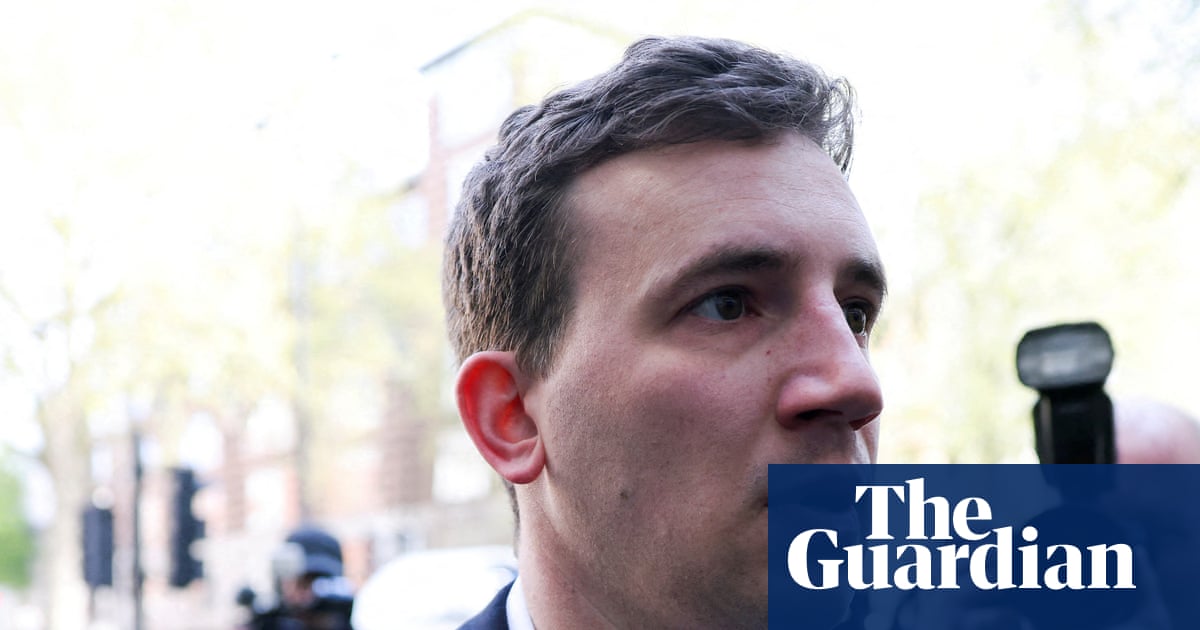No 10 rejects claim welfare U-turn shows PM caves under pressure, saying it shows this is 'government that listens'
At the lobby briefing the No 10 spokesperson also defended the welfare bill U-turn on the grounds it showed this was “a government that listens”.
Asked to respond to claims the reversal showed Keir Starmer does not “stand for anything”, the spokesperson replied:
It’s not unusual as part of the parliamentary process to introduce a bill, have a debate about the principles and then look at how those are implemented. Sometimes that’s with amendments along the way.
Asked if it was fair to say Keir Starmer always backed down if “enough people kick up a fuss”, the spokesman replied:
I don’t accept that. This is a government that listens.
Key events 21m ago Disability rights campaigners urge Labour MPs to keep fighting 'impending disaster' welfare bill 45m ago Starmer says he 'deeply regrets' using 'island of strangers' line in immigration speech, but arson attack had distracted him 1h ago No 10 rejects claim welfare U-turn shows PM caves under pressure, saying it shows this is 'government that listens' 1h ago No 10 does not rule out tax rises, but says there will be no 'permanent increase in borrowing' to fund welfare U-turn 1h ago IFS says new Pip policy will create 'big differences' in what's paid to people with similar conditions before and after cut-off 1h ago What thinktanks say about what welfare bill U-turn will cost 2h ago Disability rights campaigners say they remain opposed to welfare bill, claiming U-turn creates 'two-tier system' 2h ago Lib Dems say they will continue to oppose welfare bill, despite U-turn, because it mean 'some of most vulnerable' losing help 2h ago Jeremy Corbyn joins Tories in saying welfare bill U-turn creates 'two-tier benefits system' 3h ago Green party urges Labour MPs to keep fighting welfare bill, saying even with U-turn it's still not 'humane' 3h ago Minister dismisses claim welfare U-turn sign of weakness, saying voters 'respond very positively to politicians listening' 4h ago Many Labour MPs will still vote against welfare bill despite U-turn, leftwinger Nadia Whittome claims 4h ago Curtice says Treasury needs £4bn to fund welfare bill and WFP U-turns, and taxes likely to go up 4h ago Welfare bill U-turn could cost Treasury around £3bn a year, Resolution Foundation head Ruth Curtice says 4h ago 'Good and workable compromise' - lead Labour rebel Meg Hillier's statement on why she's accepting U-turn 5h ago No 10 defends U-turn, saying 'we have listened to MPs worried about pace of change' 5h ago Full text of Liz Kendall's letter to Labour MPs confirming welfare bill U-turn 5h ago Starmer's 'humiliating U-turn' will create 'two-tier benefits system', Tories say Show key events only Please turn on JavaScript to use this feature
Disability rights campaigners urge Labour MPs to keep fighting 'impending disaster' welfare bill
Mencap, the learning disability charity, issued a statement overnight welcoming the government’s U-turn on the welfare bill. But it has now issued an expanded statement saying it is still concerned about the legislation.
Jackie O’Sullivan, executive director of strategy and influence at the charity, said:
We are encouraged that campaigners have been heard in their opposition to the planned cuts. But we fear that if, from next year, new claimants for Pip face different rules, there will be a generational divide in the quality of life for people with a learning disability.
Other groups representing the disabled, and their carers, have also restated their opposition to the government’s plans, despite the big concessions announced overnight. I posted some comments from this sector at 11.30am. Here are more organisations speaking out.
The Disability Benefits Consortium, a coalition of more than 100 disability charities, issued a statement saying:
These supposed ‘concessions’ to the cuts bill are just a desperate attempt to rush through a disastrous piece of legislation. By pushing the cuts onto future claimants, the government are betraying the next generation of disabled people. Why should someone who needs support to wash in 2025 be entitled to Pip, but not someone who has the same needs in 2035?
If the bill passes in its revised form, it will still push more people into poverty and worsen people’s health. We urge MPs to use their power to stop this impending disaster. The bill must be stopped in its tracks.
Tim Nicholls, assistant director of policy, research and strategy at the National Autistic Society, said: “
It should not have taken this much pressure to get the government to listen and step back from some of their damaging proposals. Today’s announcement will address some of the fear many autistic people who currently receive Pip felt about losing vital support that makes their daily life more manageable. But autistic people who might need Pip in the future, like autistic children who will become autistic adults, will still be fearful about where they fit in this two-tier system …
The government should do the right thing: hit ‘pause'’ on these changes and let disabled people have a meaningful say on the future of disability benefits. We won’t stop campaigning until the benefits system truly works for autistic people.
And Helen Walker, chief executive at Carers UK, said:
The government has agreed to protect existing claimants on PIP. This will be a huge relief for unpaid carers whose income via carer’s allowance is reliant on the person they care for receiving a relevant disability benefit such as the daily living component of Pip. Many have increased costs and face significant financial challenges because of their caring roles.
It’s important that the government has listened and made changes, but we remain deeply concerned about future carers. Around 12,000 people become an unpaid carer every day in the UK. The bill as it stands will still include the new four-point rule for Pip and doesn’t change the fact that many new claimants will lose out – it still represents a reduction in financial support and a bleak outlook for future carers who won’t be entitled.
Earlier the agenda said that Keir Starmer would be speaking at the Welsh Labour conference this morning. That was a mistake. He is in north Wales today, and will be speaking to the media, but his speech to the conference is happening this weekend. Sorry.
Starmer says he 'deeply regrets' using 'island of strangers' line in immigration speech, but arson attack had distracted him
Keir Starmer has said he “deeply regrets” claiming the UK risked becoming an “island of strangers” in an immigration speech that drew comparisons to the language of Enoch Powell, PA Media reports. PA says:
The prime minister said he had not been in the “best state” to give the press conference, in which he insisted on the need for tighter border controls, as he reeled from an alleged arson attack on his family home.
He said he had considered pulling out of the speech after the fire at the property in Kentish Town left him and his wife Victoria Starmer “really shaken up.”
The PM ended up going through with the conference as planned on 12 May, hours after the blaze.
In it, he warned Britain risked becoming “an island of strangers” without tougher immigration controls – rhetoric that sparked an immediate backlash and was denounced by critics, including within Labour ranks, as divisive.
At the time, Downing Street doubled down on the remarks and said Starmer “completely rejects” suggestions he had echoed Powell’s infamous “rivers of blood” speech that was blamed for inflaming racial tensions in the 1960s.
But in an interview for the Observer Starmer struck a more conciliatory tone, saying the language “wasn’t right”.
“I wouldn’t have used those words if I had known they were, or even would be interpreted as an echo of Powell,” he said.
“I had no idea – and my speechwriters didn’t know either. But that particular phrase – no – it wasn’t right. I’ll give you the honest truth: I deeply regret using it.”
He added: “It’s fair to say I wasn’t in the best state to make a big speech … I was really, really worried. I almost said: ‘I won’t do the bloody press conference.’
“Vic was really shaken up as, in truth, was I. It was just a case of reading the words out and getting through it somehow… so I could get back to them.”
Tom Baldwin, who wrote an acclaimed biography of Starmer, interviewed him for the Observer. It’s an excellent read. I’ll post more from it soon.
No 10 rejects claim welfare U-turn shows PM caves under pressure, saying it shows this is 'government that listens'
At the lobby briefing the No 10 spokesperson also defended the welfare bill U-turn on the grounds it showed this was “a government that listens”.
Asked to respond to claims the reversal showed Keir Starmer does not “stand for anything”, the spokesperson replied:
It’s not unusual as part of the parliamentary process to introduce a bill, have a debate about the principles and then look at how those are implemented. Sometimes that’s with amendments along the way.
Asked if it was fair to say Keir Starmer always backed down if “enough people kick up a fuss”, the spokesman replied:
I don’t accept that. This is a government that listens.
No 10 does not rule out tax rises, but says there will be no 'permanent increase in borrowing' to fund welfare U-turn
Downing Street has said there will be no permanent increase in government borrowing as a result of the welfare bill U-turn. Asked at the morning lobby briefing about how the concession would be funded, a No 10 spokesperson said:
There’ll be no permanent increase in borrowing, as is standard. We’ll set out how this will be funded at the budget, alongside a full economic and fiscal forecast in the autumn, in the usual way.
Asked if taxes might go up to fund the new policy, the spokesperson said:
As ever, as is a long-standing principle, tax decisions are set out at fiscal events.
IFS says new Pip policy will create 'big differences' in what's paid to people with similar conditions before and after cut-off
Although the Institute for Fiscal Studies and the Resolution Foundation agree on the cost of the welfare bill U-turn (see 11.55am), there is some difference in what they are saying about the fact that the changes will implement what has been called a “two-tier” system – with existing claimants getting more than someone applying with the same health condition once the new eligibility requirements kick in.
In an interview this morning, Ruth Curtice from the Resolution Foundation said anomalies like this were a routine feature of benefit policy reform. (See 9.40am.) But the IFS says, in its statement today, that this will create “big differences” in what is paid to disabled people with similar conditions, submitting claims at roughly the same time.
The IFS briefing says:
These two changes mean that the cuts are only on new claimants. This creates a large difference in treatment depending on the timing of disability onset. Take two people who develop the exact same health problems, but one develops them just early enough (before November 2026) to qualify as an ‘existing claimant’ and one just too late. The first is assessed for Pip and UC health element under the current rules and receives £8,930 in total – £3,850 from Pip and £5,080 from UC health element. The second is assessed under the new rules – because of the tighter criteria they do not qualify for Pip, and they receive the new lower UC health element, which after the freeze will be worth £2,370 (in today’s prices). If the government goes ahead with its proposed plans to scrap the work capability assessment, the second claimant would receive no specific support for health conditions at all. These differences would persist indefinitely, in some cases for many years.
And Tom Waters, an associate director at the IFS, said:
This [policy] will create big differences – thousands of pounds a year, for many years in some cases – between similar people with similar health conditions who happen to have applied at slightly different times.
What thinktanks say about what welfare bill U-turn will cost
The government has refused to say how much its welfare bill U-turn will cost, but the Institute for Fiscal Studies and the Resolution Foundation, the UK’s two leading public spending thinktanks have both issued statements providing costings. They are both saying the concessions will cost around £3bn a year (although there are some minor differences in the figures they are using).
In its analysis, the IFS says:
The initial benefit reforms would have saved the government £5.5bn by 2029–30. The revised package of reforms will save only £2.5bn, so will cost the government £3.0bn relative to its previous plans.
-The first change is to not apply the new, tighter assessment for existing claimants of personal independence payment (Pip) at the point of being reassessed. This is set to affect 370,000 current claimants in 2029–30, benefiting them to the tune of around £4,150 per year on average (in today’s prices). It will also indirectly benefit around 50,000 claimants of carer’s allowance who look after a Pip claimant, by £4,340 per year.
-The second change is to the universal credit (UC) health element, paid to those who have a condition that prevents them working. The previous plan had been to freeze this element for existing claimants and roughly halve, then freeze, it for most new claimants. The precise detail here is slightly ambiguous, but the new policy seems to be to no longer freeze the element for existing claimants (the halving and freezing for new claimants will continue). This will benefit 2.2 million claimants of the benefit in 2029–30 by £450 per year. Some will gain from both this and the Pip policy.
And in its analysis, the RF says:
These changes are welcome, but could cost between £2.6bn and £3.2bn a year in 2029-30 – making it even tougher for the Chancellor to meet her fiscal rules this autumn ….
The key change is that current Pip claimants will no longer lose support, even if they do not qualify for support under the new criteria (scoring at least four points in any single heading for the daily living component of the PIP test). Around 370,000 claimants are expected to have £4,500 protected, on average. This protection also has knock-on effects for their carers, who will continue to receive carers’ allowance. Taken together, this protection comes at a cost of £2.1bn in 2029-30.
The government has said existing recipients of the health element of UC will see support protected in real terms. This will insulate 2.25 million people from a loss of between £250 and £500 per year, and will cost between £540m and £1.1bn, depending on how it is implemented.
Overall, the changes announced today will cost between £2.6bn and £3.2bn in 2029-30 – reducing the gross savings from the original proposals from £8.1bn to as little as £4.9bn.
Disability rights campaigners say they remain opposed to welfare bill, claiming U-turn creates 'two-tier system'
Ministers seem to have failed to win over disability rights campaigners with the U-turn announced overnight.
Although Mencap, the learning disability charity, issued a relatively supportive comment about the changes agreed late yesterday, most the the disability charities or campaign groups commenting today have said they remain opposed to the bill.
James Taylor, director of strategy at disability equality charity Scope, said:
It is encouraging that the government is starting to listen to disabled people and MPs who have been campaigning for change for months. But these plans will still rip billions from the welfare system.
The proposed concessions will create a two-tier benefits system and an unequal future for disabled people.
“Life costs more if you are disabled. And these cuts will have a devastating effect on disabled people’s health, ability to live independently or work.
We urge government to properly engage with disabled people and MPs on how best to reform welfare and create an equal future.
Mikey Erhard, policy lead at Disability Rights UK, which describes itself as the country’s leading disability rights organisation, said:
We completely reject the imposition of the two-tier system on offer. It is not a massive concession to have a benefit system where future generations of disabled people receive less support than disabled people today. MPs must vote against this proposal.
By attempting to push through cruel cuts to the benefits of disabled people, the government prioritised balancing its books over improving the lives of disabled citizens. Now, it is negotiating political deals, again with no concern for the lives of disabled people.
Despite seemingly rowing back on some of the worst aspects of its plans, the government is still attempting to slash billions of pounds from a system that doesn’t provide enough support as it stands.
Charlotte Gill, head of campaigns and public affairs at the MS Society, said:
The government are finally being forced to reckon with the crisis that their proposed benefits cuts would present to disabled people, including many with MS. But instead of meaningful action, all they’re doing is kicking the can down the road and delaying an inevitable disaster.
Down the line, these cuts will still push more people into poverty and worsen people’s health. We urge MPs not to be swayed by these last ditch attempts to force through a harmful bill with supposed concessions. The only way to avoid a catastrophe today and in the future is to stop the cuts altogether by halting the bill in its tracks.
And a joint statement from Disabled People Against Cuts, Mad Youth Organise, Disability Rights UK, National Survivor User Network and Crips Against Cuts said:
Disabled people and disability rights groups totally reject the performative politics being enacted by the government, in response to being challenged by a growing MP rebellion and a tidal wave of anger from the public.
We will not sell out generations of disabled people past and future by accepting this sham of alleged concessions on welfare spending so that they can save face. The reforms are ill thought out, and MPs still do not have a full understanding of their implications and impact.
Lib Dems say they will continue to oppose welfare bill, despite U-turn, because it mean 'some of most vulnerable' losing help
Like the Green party (see 10.31am), the Independent Alliance (see 11am) and some Labour MPs (see 9.50am), the Liberal Democrats are saying the U-turn does not go far enough, and that the UC and Pip bill should not be allowed to go ahead on Tuesday.
Steve Darling, the Liberal Democrats’ welfare spokesperson, said:
It should not have taken a major rebellion for the government to realise that these cuts would cause immense damage to some of the most vulnerable and risk creating a false economy by actually forcing some people out of work.
The government should still pull this bill before the vote on Tuesday and go back to the drawing board. In the absence of any impact assessment, MPs still do not have the full facts and those who are affected have still not been consulted on these changes.
Liberal Democrats will continue to oppose this bill that risks stripping thousands of carers of vital assistance and leaving some of the most vulnerable without support.
Jeremy Corbyn joins Tories in saying welfare bill U-turn creates 'two-tier benefits system'
Jeremy Corbyn, the former Labour leader who acts as a spokesperson for the five-strong Independence Alliance group of independent MPs, has put out a statement saying he and his colleagues still regard the welfare bill as unacceptable. He says:
The government has announced a two-tier benefits system.
Under its plans, you can keep your benefits if you are disabled now, but not if you become disabled tomorrow. How is that fair?
A reminder: The Independent Alliance stands by its own amendment, and we will not back down.
Here is the Independent Alliance’s reasoned amendment opposing the bill.

In using the phrase “two-tier benefits system”, Corbyn is using the same line of attack as the Conservatives. (See 8.30am.) They are both making the point that, under these plans, someone getting Pip now may get more than someone with the same disability who makes an application after the eligibility rules have been tightened.
But this is true of most changes to benefits, or any other state entitlement, as ministers and experts have said this morning. (See 9.40am and 10.19am.) Matthew Holehouse from the Economist has been criticising the argument on Bluesky.
It’s such a cheap and weak critique: policy reforms are invariably “two tier” in that they treat future cohorts differently to current cohorts. (See: tuition fees; pension entitlement; paternity leave; 1000 other examples). The only critique is: is the future regime the right one.
The answer to that in this case may be no, in which case the Tories should prosecute that argument
Green party urges Labour MPs to keep fighting welfare bill, saying even with U-turn it's still not 'humane'
The Green party says it is still opposed to the UC and Pip bill, despite the U-turn. In a statement the Green MP Siân Berry said:
The responsibility is now with other Labour MPs to stand firm in the face of this inadequate offer. Political pressure means a reprieve for some who were set to be cruelly harmed, but this will leave disabled people, young people and those who will become sick and injured in the future, high and dry.
The prime minister should withdraw the Bill, take some considerable time to consult with disabled people and come back with something humane and workable.

 2 months ago
89
2 months ago
89

















































